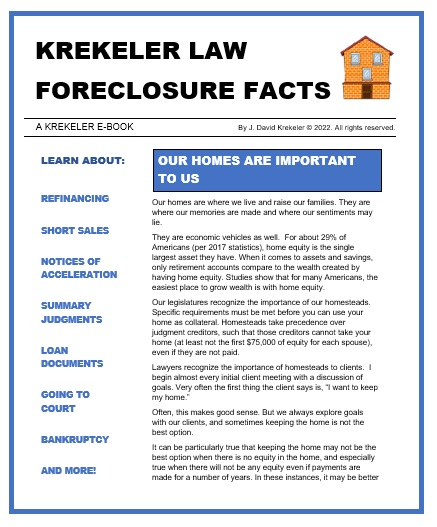Clients often ask me this question. They were instructed to operate their business as either a corporation or a limited liability company (LLC), and were led to believe that they would not have liability for the debts which the entity might incur.

This general statement about limited liability is true, but often no one explains the exceptions to this limited liability. And those exceptions are significant.
Operating as a corporation or an LLC will not protect the owners if they sign personal guaranties. Banks and other lenders, and even many vendors, are well aware of this exception and often require personal guaranties when extending credit to a limited liability entity.
Then, when the business defaults, the holder of the guaranty seeks recovery from the owners. The larger the obligation, the more likely it is that there will be a guaranty.
Another way that owners become personally liable for debts of an entity is if a statute establishes that personal liability. The most common examples are various taxes, including payroll taxes. Another example would be theft by contractor laws, and various consumer violations.
In many instances the owners will need to seek bankruptcy relief. At this point, they might discover yet another reason to wish they had not formed the limited liability entity.
Debtors are allowed to keep certain kinds and types of property, up to certain values. These assets are called exempt property.
Outside of bankruptcy, exempt property cannot be seized or attached by creditors. In a bankruptcy, neither the creditors nor the bankruptcy trustee may liquidate exempt property. That property will revert back to the debtor as part of the fresh start policy underlying bankruptcy.
But only individual debtors get to claim property as exempt. Corporations and LLCs are not entitled to any exemptions. All assets of such entities are available for liquidation with the proceeds to be distributed to creditors.
Individual debtors may even be able to create exempt property. Certain types of liens on certain kinds of property may be avoided. The most commonly avoided liens are probably those on equipment or tools of the trade of the debtor. Wisconsin law allows the debtor $15,000 of such tool of the trade exemptions. For a married couple, $30,000 is allowed.
People often think of the assets of their corporation or LLC as their own. They are not. Such entities have a separate legal existence from the owners. The entity owns the assets. The shareholders or members own stock and membership interest, but not the assets.
When such an owner files bankruptcy, the ownership interest, whether shares or membership, become assets of the bankruptcy estate.
Finally, many businesspeople own more than one business entity. They may have separate entities for different aspects of the business, such as an entity to operate the business, and another which owns the real estate occupied by the business. Filing separate bankruptcy cases for multiple entities becomes very expensive.
We sometimes try to remedy these various problems by eliminating the business entity. At the very least, this saves our clients thousands of dollars in filing fees and administrative costs.
A better approach would be to carefully think through the reasons for operating as an LLC or a corporation before creating these entities. Or at least plan for their dissolution well in advance of needing a bankruptcy.
If you do not know why you are operating as a corporation or an LLC, perhaps you should not be.

